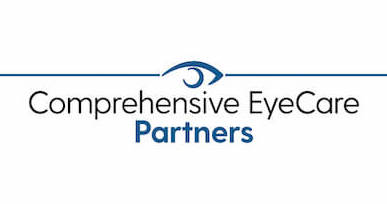
Several health organizations recognize February as Age-Related Macular Degeneration (AMD) Month. The most important one that does is the American Academy of Ophthalmology.
AMD is one of the more common age-related eye conditions, and it can be hard to spot in the early stages of the disease. It affects the center of your vision, reducing your vision over time to only the peripheral.
This can be alarming, and unfortunately, damage to the eye from AMD is irreversible. But awareness about AMD can still help you, especially if you know your risk and have regular eye exams.
What is AMD?
Age-related macular degeneration affects the retina, which is the part of your eye that translates the light that passes through your eye into impulses sent to your brain in the form of images. The macula is the center of the retina.
Over time, the photoreceptor cells in charge of sending these impulses degrade simply due to aging. The more cells lost, the further the damage becomes until you lose your central vision.
There are two forms of AMD: dry and wet. Dry is far more common and happens when the macula becomes thinner as cells die.
Wet AMD is rarer but causes faster vision loss and occurs when abnormal blood vessels grow, swell, and leak under the retina, causing scarring to the macula.
Neither wet nor dry AMD present early symptoms and are usually only noticeable in the advanced stages. The most common symptom is blurry vision and blank spots in your visual field.
If you experience these symptoms, especially if they happen suddenly, see an eye care professional as soon as you can.
Who Develops AMD?
Anyone can develop AMD, but some people are at higher risk than others. Those at the highest risk for AMD are:
- People over the age of 60
- Caucasians
- People with a family history of AMD
- People with high cholesterol or high blood pressure, or both
- People who smoke
You can’t help some factors. But you can mitigate your risk by addressing the factors that you have control over.
If you’re a smoker looking for another reason to stop smoking, here it is! A balanced diet and an active lifestyle can also help prevent heart and blood problems associated with AMD and many other diseases.
While you can’t prevent AMD, you can still lead a healthy life and reduce your risk. But most importantly, you should have regular eye exams.
If you do develop AMD, it can be monitored and appropriately treated. If you’re at risk, you should be seeing an eye doctor at least once a year for a comprehensive eye exam.
Can AMD Be Treated?
You cannot treat AMD if it is still in the early stages. With dry AMD, you can treat the condition, but usually only with nutritional supplements.
This is usually the only method of treatment. But it’s still essential to have AMD diagnosed early as monitoring the condition can help you and your eye doctor understand your visual limitations and make adjustments to your lifestyle.
With wet AMD, treatment is often in the form of anti-VEGF injections that target the protein in your eye in charge of triggering blood vessel growth. Regular injections can slow down and even stop abnormal blood vessels from growing. There’s also a form of laser therapy that can help treat wet AMD.
Whatever form of AMD you have or are at risk for, the most important thing you can do to keep your eyes healthy is to regularly see an eye care professional.
If you want to keep your eyes healthy from conditions like AMD, the first step is an appointment with an eye doctor. Schedule one at Shepherd Eye Center in Las Vegas, NV, today!


